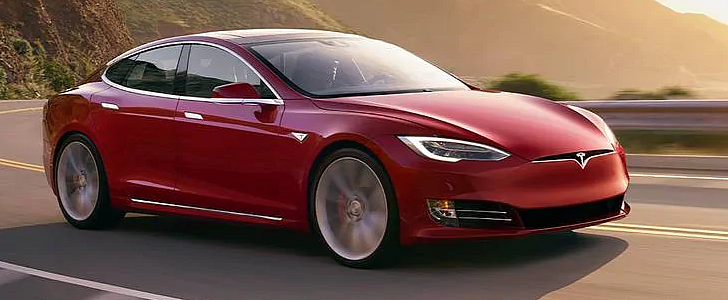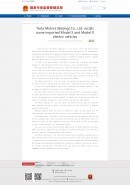Tesla will be recalling almost 30,000 Model S and Model X vehicles shipped to China, for two different suspension issues detected. Tesla has confirmed the recall but, as it turns out, doesn’t agree with it.
As we informed you in a previous article, 29,193 units of the Model S and Model X shipped to China display issues with the front suspension linkage,which affects the steering system. Moreover, 19,249 of these display a second problem with the rear suspension link, which can be deformed by an external impact to the point where it’s rendered unsafe.
Tesla has agreed to shipping replacement parts to Shanghai, from where they will be sent out to service centers mainland. All repairs will come at no cost to the owners.
While this initially sounded like standard stuff as far as recalls go, Electrek has obtained a letter from Elizabeth H. Mykytiuk, Tesla’s managing counsel for regulatory affairs, to the NHTSA, in which Tesla is arguing that China is forcing the recall. There is no defect with Model S or Model X suspension, Mykytiuk insists, but Tesla had to choose between the recall and “carrying a heavy burden through the Chinese administrative process.”
Tesla chose the former but stresses that it disagrees with the reason offered for the recall. If there are issues with suspension in China, it’s not because of a defect but because of the drivers and road conditions here.
“Tesla has not determined that a defect exists in either the Front Suspension Aft Link or the Rear Suspension Upper Link and believes the root cause of the issue is driver abuse, including that driver usage and expectation for damageability is uniquely severe in the China market,” Mykytiuk writes.
“If the customer inputs an abuse load (e.g., curb impact, severe pothole strike, etc.), then the parts may be damaged, leading either to immediate failure or delayed failure from the compounding effects of the initial abuse and subsequent load input.”
Back in 2016, the NHTSA investigated a potential suspension issue in the same models from Tesla, but found no defect. The Model S and Model X vehicles supposedly affected now are those produced between September 2013 and January 2018.
Tesla has agreed to shipping replacement parts to Shanghai, from where they will be sent out to service centers mainland. All repairs will come at no cost to the owners.
While this initially sounded like standard stuff as far as recalls go, Electrek has obtained a letter from Elizabeth H. Mykytiuk, Tesla’s managing counsel for regulatory affairs, to the NHTSA, in which Tesla is arguing that China is forcing the recall. There is no defect with Model S or Model X suspension, Mykytiuk insists, but Tesla had to choose between the recall and “carrying a heavy burden through the Chinese administrative process.”
Tesla chose the former but stresses that it disagrees with the reason offered for the recall. If there are issues with suspension in China, it’s not because of a defect but because of the drivers and road conditions here.
“Tesla has not determined that a defect exists in either the Front Suspension Aft Link or the Rear Suspension Upper Link and believes the root cause of the issue is driver abuse, including that driver usage and expectation for damageability is uniquely severe in the China market,” Mykytiuk writes.
“If the customer inputs an abuse load (e.g., curb impact, severe pothole strike, etc.), then the parts may be damaged, leading either to immediate failure or delayed failure from the compounding effects of the initial abuse and subsequent load input.”
Back in 2016, the NHTSA investigated a potential suspension issue in the same models from Tesla, but found no defect. The Model S and Model X vehicles supposedly affected now are those produced between September 2013 and January 2018.












